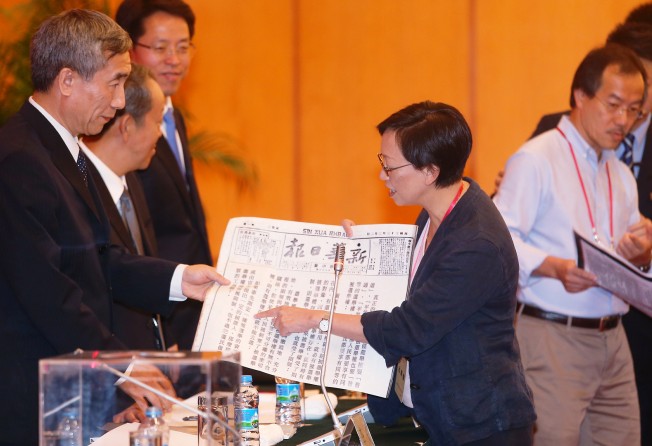Pessimism deepens over Hong Kong's plan for electoral reform

There were never high hopes of a breakthrough in the electoral reform deadlock. But the sense of pessimism has nonetheless deepened after Beijing officials and pan-democratic lawmakers failed to find a way out during talks in Shenzhen on Sunday. The outcome is regrettable. Barring further development in the next two weeks, the proposal looks likely to be voted down in the legislature. The stakes have apparently been raised even higher following Sunday's meeting. Beijing officials reportedly said that a handful of hardliners had been using the term democracy to conceal their view of Hong Kong as an independent political entity. The officials said the reform would not only be a test of lawmakers' loyalty to the principle of one country, two systems and the Basic Law, but also a watershed that would lead to either better cooperation or continued confrontation. In response, the pan-democrats said they had no lingering hope and vowed to reject the package, expected to be put to a vote on June 17.
Whether the reform is a test of political allegiance is open to debate. But the tough rhetoric does little to bridge the political divide. Beijing is right in saying that the authority of the decision made by the National People's Congress Standing Committee is beyond doubt but as opinion polls have consistently showed, some 30 to 40 per cent of respondents do not support the reform. Their opposition does not necessarily mean they do not support the one country, two systems principle and the Basic Law. If anything, they just don't want to endorse a framework that falls short of their expectations.
While it is still in the city's interest to pass the reform, officials appear to be preparing for the worst. Chief Executive Leung Chun-ying said his team would focus on livelihood and economic issues in the event of the reform being rejected. This is not just to dampen hopes of restarting the process in the near future. With Beijing insisting on its framework in the years to come, expectations of Leung tabling a more democratic package are unrealistic. Officials may think a "no" vote will be the end of a chapter. But people's aspirations for democracy will not go away. Whoever is at the helm will face pressure for more democracy and better governance. It is good to learn that Beijing regards the majority of pan-democrats as "friends" and is willing to maintain dialogue. Both sides should strive to enhance mutual trust and cooperation and come up with a package acceptable to all, even though it may not happen soon.